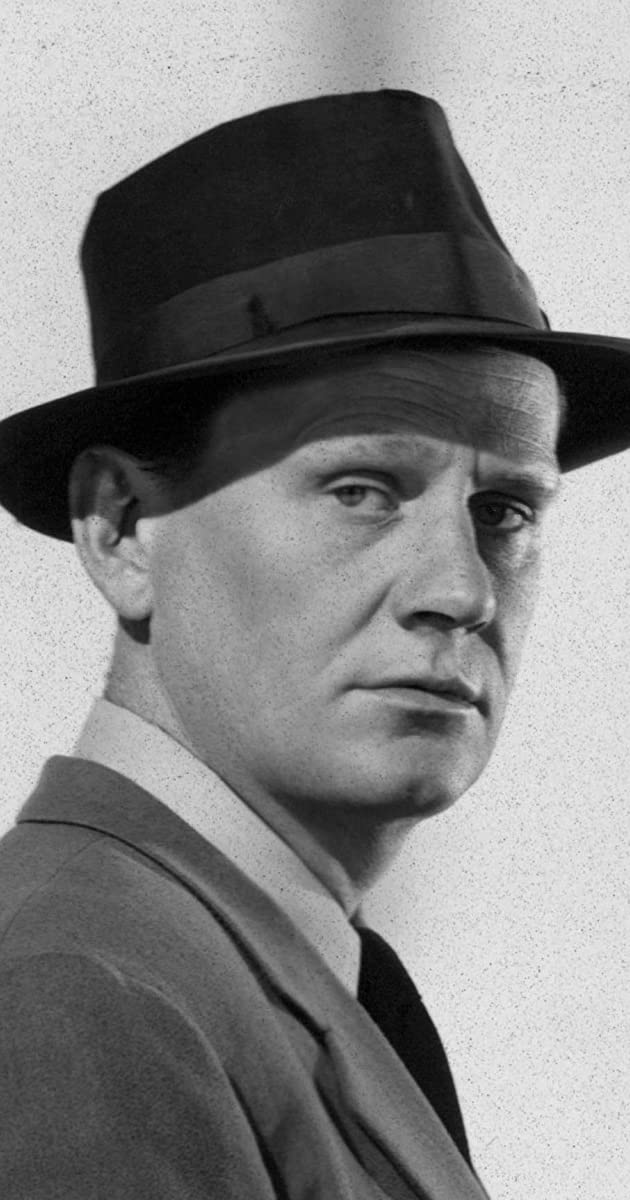
Wendell Corey was a hard-working American character actor who appeared in numerous movies and television productions in the 1940s, ’50s and ’60s. Born on March 20, 1914 in Dracut, Massachusetts, in the northeastern part of the Commonwealth near the New Hampshire border, Corey was the son of a Congregationalist clergyman. After receiving his education, Corey began his acting career in summer stock. During the Depression he worked with the Federal Theater Project, part of the Works Progress Administration that had been created by President Franklin D. Roosevelt to put the unemployed to work. It was while working with the Federal Theater Project in the late 1930s that he met his wife, Alice Wiley.
He made his Broadway debut in “Comes the Revelation” in 1942, a flop that lasted only two performances. His next play, “Strip for Action” (1942-43), was more successful, lasting 110 performances. He appeared in more plays in supporting roles from 1943-45, before making his reputation as the cynical newspaperman in Elmer Rice’s hit comedy “Dream Girl,” which ran for 341 performances in the 1945-46 season. He was discovered during the run of the play by producer Hal B. Wallis, the former head of production at Warner Bros. who was an independent producer affiliated with Paramount Pictures. Wallis, who discovered Burt Lancaster shortly after the war, signed Corey to a Paramount contract.
It was at Paramount that he made his movie debut in Desert Fury (1947). He went on to a career as a supporting player in the ’40s and ’50s in A-level productions with top Hollywood stars. He also carved a niche for himself in television and in the late 1950s starred in the TV series Peck’s Bad Girl (1959). In the 1960s he worked mostly in television.
Like Ronald Reagan, who was then a Democrat, the Republican Corey was interested in politics. He was elected to membership on the board of directors of the Screen Actors Guild and served as president of the Academy of Motion Picture Arts and Sciences from 1961 to 1963. As a Republican, he was elected to the City Council in Santa Monica, California, in 1965. He made a bid for the Republican nomination to contest a seat in Congress in 1966, but was defeated in the primary.
Corey was still serving on the Santa Monica City Council when he died on November 8, 1968 at the Motion Picture & Television Hospital in Woodland Hills, California. He was 54 years old.


